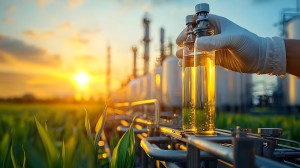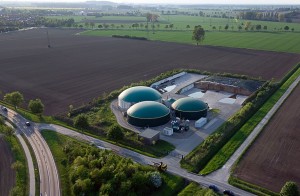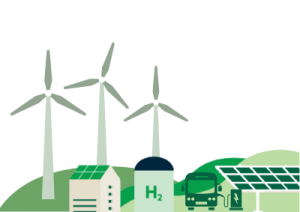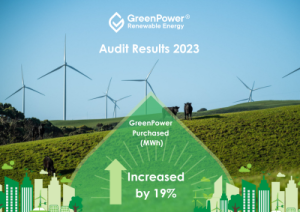LCLF and Biogenic CO2 Certification announcement
We're excited to share that GreenPower is developing two new certification schemes to accelerate the transition to cleaner fuels in Australia:
- Low Carbon Liquid Fuels Certification – covering sustainable aviation fuel (SAF), renewable diesel, biodiesel, renewable LPG and bioLPG.
- Biogenic CO₂ Certification – covering captured carbon dioxide that originates from natural biological sources.
These certifications will aim to support emerging renewable fuels production and help hard-to-abate sectors decarbonise, such as heavy transport, aviation, mining, agriculture, maritime and industrial processes.
Low Carbon Liquid Fuels
Australian hard-to-abate sectors have a high reliance on liquid fuels, and is projected to increase significantly by 20501,2,3 even with continued progress in electrification.
Low Carbon Liquid Fuels (LCLF) produce substantially lower, and in some cases near-zero, lifecycle CO₂ emissions compared to equivalent fossil fuels. LCLFs can be used as drop-in fuel or blended alternatives within current infrastructure, equipment, engines and vehicles. This compatibility enables emissions reduction using existing infrastructure. Compatible LCLFs prevent early asset decommissioning, allowing liquid fuel-dependent systems to operate for their full intended operational lifespan.
The development of a domestic LCLF industry will lower emissions and enhance Australia’s fuel security. A domestic LCLF industry will provide economic opportunities by driving local job creation, regional economic growth and offering new income sources for farmers providing feedstocks for biofuel production.
Biogenic carbon dioxide (CO2)
Biogenic CO2 is carbon dioxide that originates from natural biological sources, primarily through the combustion, fermentation or decomposition of biomass. It is part of the short-term natural carbon cycle, meaning the carbon released was recently absorbed from the atmosphere by plants during photosynthesis.
Sources of biogenic CO2 include biomethane production, ethanol production, biogas to electricity cogeneration, landfill gas operations and waste management facilities. Biogenic CO2 demand includes the food and beverage industry, agriculture, industrial applications, chemicals manufacturing, water treatment, renewable fuel production, and carbon capture and storage (CCS) operations.
A certification scheme for biogenic CO₂ supports the biofuel industry by encouraging the use of biogenic CO₂ instead of fossil CO₂, ensuring the biofuel end-product is low carbon. Certified biogenic CO₂ provides end-users a verified biogenic CO₂ product they can use to make low-carbon products for sustainability-conscious customers.
If you’re working on renewable fuels or biogenic CO2 solutions – we’d love to hear from you.








